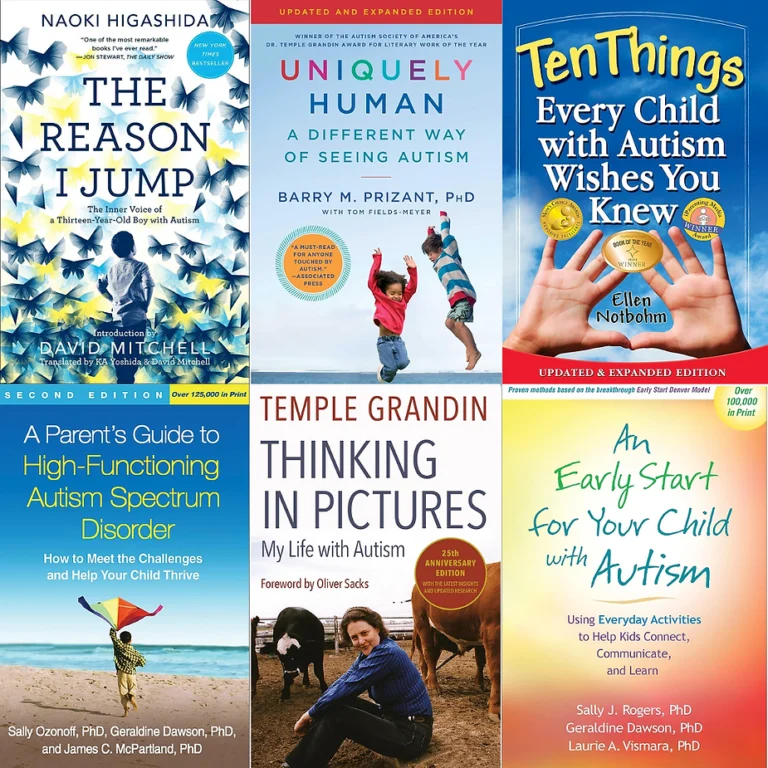20 Practical Ways To Overcome Autism Mom Burnout

This post may contain affiliate links and I could earn a small commission at no cost to you. However, I will never recommend anything that I do not believe in or use myself. You can read more about my disclosure policy here.
You’ve probably heard about the exhaustion that comes with parenting, but Autism Mom Burnout is something else entirely. It’s the kind of fatigue that doesn’t go away with a good night’s sleep.
According to a study, mothers of children with autism experience significantly higher levels of stress than moms of neurotypical kids. And it’s not just about feeling tired—it’s about feeling depleted in every sense: physically, emotionally, mentally.
This is more than just juggling a busy schedule. It’s the weight of managing sensory sensitivities, constant therapies, meltdowns, and an endless list of “what ifs.” It’s waking up each day on high alert, knowing any moment could shift from calm to chaos.
Let’s break it down. Autism Mom Burnout happens because you’re always “on.” Whether you’re keeping an eye out for potential triggers or balancing the needs of your child with your own personal well-being, there’s rarely a moment of rest. But the good news? There are real, actionable ways to manage it.
This isn’t about surviving anymore—it’s about finding a way to thrive. So, let’s talk about it. Let’s dive into what it looks like, why it happens, plus 20 practical ways to help overcome autism mom burnout while continuing to care for your wonderful child.
What is Autism Mom Burnout?
Autism Mom burnout, also known as depleted mom syndrome, is a state of physical, emotional, and mental exhaustion. It is chronic stress and exhaustion from the demands of constant caregiving.
It can sneak up on you when you’re dedicating all your time and energy to caring for someone else.
When you’re caring for an autistic child, the demands can be even more intense due to the unique challenges that autism presents.
This might include managing sensory sensitivities, navigating meltdowns, and coordinating various therapies and appointments.
Related: How to Calm Autistic Meltdowns: 7 Tips that Work
Why Does Autism Mom Burnout Happen?
Autism Mom burnout is common when you’re parenting an autistic child, and here’s why it’s common for many of us.
First off, there’s a constant need for vigilance. Autistic kids often require constant supervision and support, so you’re basically on high alert all the time.
It’s like having your brain’s emergency response system on 24/7. You’re constantly scanning for potential triggers, trying to prevent meltdowns, and making sure they’re safe. It’s exhausting, to say the least.
Then there’s the emotional strain. It’s heart-wrenching to see your child struggle with things that come so easily to other kids.
You can’t help but feel a mix of frustration, sadness, and helplessness. And let’s be real, these feelings add up and can weigh you down.
And don’t even get me started on the isolation. It’s like you’re surrounded by people who just don’t get it.
Friends and family might mean well, but unless they’ve walked a mile in your shoes, they can’t truly understand what you’re going through. So you end up feeling isolated and alone.
And let’s not forget about the lack of personal time. Between therapy sessions, doctor appointments, and just the day-to-day stuff, finding time for yourself can feel impossible.
But here’s the thing – without a break, you’re heading straight for Autism Mom Burnout. It’s like using your phone without ever recharging the battery. Eventually, it’s going to shut down completely.

Signs of Autism Mom Burnout
- Constantly Overwhelmed: You know you might be heading towards autism mom burnout when even the smallest tasks feel overwhelming.
Like, you used to be able to handle the chaos of getting your kid ready for school, but now it’s like you’re wrestling a tornado every morning.
It’s exhausting, and no amount of coffee seems to help.
- Mom guilt – oh, the guilt. You feel like you’re failing your child because you can’t do it all.
You see other parents effortlessly juggling work, family, and hobbies, and you wonder what’s wrong with you.
It’s a never-ending cycle of self-doubt and second-guessing that leaves you feeling utterly drained.
- Experiencing mood swings: One minute, you’re fine – the next, you’re a sobbing mess.
Your emotions are all over the place, and you feel like you’re on an emotional rollercoaster that never seems to end.
It’s like you’re living in a constant state of overwhelm, and you’re not sure how much more you can take.
- Neglecting your own needs: You used to make time for hobbies, exercise, or even just a decent meal, but now it feels like all your energy goes into taking care of your child.
Self-care? What’s that? Your needs have taken a backseat, and you can’t remember the last time you did something just for yourself.
- Experiencing physical symptoms: Stress can take a toll on your body, and you might start noticing things like headaches, stomachaches, or trouble sleeping.
Your body is basically screaming at you to slow down, but you’re too busy running on autopilot to listen.
- Feeling resentful: You love your child more than anything, but let’s be real – caring for them 24/7 is hard.
Sometimes, you can’t help but feel a twinge of resentment towards them or your partner for not shouldering more of the burden.
It’s a normal reaction to an incredibly challenging situation, but it doesn’t make it any easier to deal with.
- Constantly worried: Your mind is always racing with “what ifs” and worst-case scenarios.
What if your child has a meltdown in public? What if they never learn to talk? What if you’re not doing enough to help them?
The constant worry and anxiety are like a heavy weight pressing down on you, making it hard to breathe.
- Feeling isolated: You used to have a solid support system, but now it feels like you’re all alone in this.
Maybe friends and family don’t understand what you’re going through, or maybe you’re just too overwhelmed to reach out for help.
Either way, the sense of isolation can make everything feel ten times harder.
- Withdrawing from social activities: Remember when you used to have a social life? Yeah, neither do we.
You find yourself canceling plans with friends or avoiding social gatherings altogether because you just don’t have the energy to deal with people.
It’s easier to stay home and wallow in your own misery.
- Losing interest in things you used to enjoy: Remember when you had hobbies and interests outside of caregiving? Yeah, those were the days.
Now, it feels like you don’t have the time or energy for anything other than keeping your child safe and happy.
Your once passionate pursuits have been put to the back burner, and you’re starting to wonder if you’ll ever get back to them.
- Using unhealthy coping mechanisms: When the stress becomes too much to bear, it’s tempting to turn to unhealthy coping mechanisms like excessive drinking or binge eating.
These behaviors might provide temporary relief, but they only make things worse in the long run.
If you find yourself relying on these coping mechanisms more and more, it’s a clear sign that you need to reach out for help.

20 Practical Tips to Overcome Autism Mom Burnout
Taking care of yourself is essential, not just for your own well-being but for the well-being of your child. Here are 20 ways to help you overcome autism mom burnout:
1. Identify What is Causing the Burnout
First off, pinpoint exactly what’s driving your exhaustion.
Is it the constant vigilance required to keep your child safe? Maybe it’s the unpredictable meltdowns that leave you both emotionally drained? Or perhaps it’s the lack of personal time that makes you feel like you’re losing touch with yourself?
By identifying these specific stressors, you can start to tackle them head-on. Sometimes, just acknowledging that a particular aspect of caregiving is overwhelming can provide a bit of relief and clarity about what needs to change.
It’s like shining a flashlight in the dark – suddenly, you can see what you’re dealing with and start figuring out a plan to manage it. This clarity can make a huge difference in how you approach your day-to-day life.
2. Talk About Your Feelings
When you’re feeling overwhelmed, bottling up your emotions can make everything so much worse. Find someone you trust, whether it’s your partner, a close friend, or even a therapist, and open up about what you’re going through.
Keeping those feelings inside can make them grow and fester, leading to even more stress and anxiety. Plus, talking things out can help you gain perspective and might even lead to some practical advice or support you didn’t know was available.
Remember, expressing your feelings is a way to lighten the load and feel understood, which is incredibly important when you’re dealing with such a demanding situation.
3. Join a Support Group
Joining a support group for parents of autistic children can be incredibly beneficial. These groups offer a chance to share experiences and solutions, and to feel understood and supported by others in similar situations.
It’s a space where you don’t have to explain the basics because everyone is already on the same page. This sense of community can be a great source of comfort and practical advice.
Plus, you might learn new strategies that have worked for other parents, which can be incredibly helpful.
Support groups can also provide a sense of solidarity and remind you that you’re not alone in this journey.
4. Practice Self-Care
Self-care for an autism mom is vital and not something to feel guilty about. This can include physical exercise, mindfulness, meditation, good nutrition, and adequate sleep. Check out my list of best self care ideas for mom.
Taking care of your own needs isn’t selfish; it’s essential to being able to care for your child effectively. When you’re well-rested and feel good, you’re more patient, energetic, and capable.
Make time for activities that nourish your body and soul. Whether it’s a hobby, a workout, or simply relaxing, self-care helps you recharge so you can be the best caregiver possible.
Related: 150+ Best Self Care Ideas For The Ultimate Mom Reset
5. Educate Yourself
Knowledge is power, especially when it comes to parenting an autistic child. Read books and resources that offer insights and strategies for raising an autistic child. Check out my list of best books about autism for parents.
Books like “The Reason I Jump” by Naoki Higashida or “Uniquely Human” by Dr. Barry Prizant can provide valuable perspectives and coping mechanisms. The more you understand, the better you can support your child and yourself.
Education can also alleviate some of the uncertainty and fear by equipping you with tools and strategies to handle various situations. Plus, it can empower you to advocate more effectively for your child’s needs.
Related: 10 Of The Best Books About Autism for Parents

6. Create a Supportive Environment
Establishing a consistent daily routine can reduce stress for both you and your child. Visual schedules and clear expectations can provide a sense of security.
Additionally, creating a calming space in your home where your child can retreat when they feel overwhelmed can also give you a breather.
A supportive environment helps manage anxiety and can make daily activities smoother. It’s about finding ways to make your home a place where everyone feels safe and understood.
These small changes can have a big impact on your overall stress levels and your child’s well-being.
7. Ask for Help
Asking for help can feel awkward, but it’s essential. Don’t hesitate to reach out to family and friends you trust. Often, people are more than willing to lend a hand but simply don’t know you need it.
Whether it’s watching your child for a few hours so you can take a break, or helping with errands, those small acts of assistance can make a big difference.
Additionally, look into local services or organizations that offer respite care. These services provide temporary relief by taking over caregiving duties for a short period, allowing you to rest and recharge.
It’s okay to take a step back and let someone else take over for a while. Even a few hours can make a huge difference in how you feel.
This break can be crucial for your mental and physical health, helping you return to caregiving with renewed energy and patience.
8. Don’t Compare Yourself to Other Moms
It’s so easy to fall into the trap of comparing yourself to other moms, especially when social media is flooded with perfect pictures and seemingly flawless lives. But this can lead to unnecessary stress and feelings of inadequacy.
Every child and every family is different, and what works for one may not work for another. Celebrate your unique journey and remember that you’re doing your best in a challenging situation.
Instead of focusing on what others are doing, acknowledge the effort and love you put into your child’s care every day. Embrace your own pace and progress, and give yourself credit for all the hard work you do.
9. Take a Break
It’s completely okay to take a break. In fact, it’s necessary for your well-being.
Step outside for a few minutes, read a book, or enjoy a cup of coffee alone. Even short breaks can recharge your energy and patience, making you a more effective and loving caregiver.
Think of it like recharging your phone – if you don’t take the time to plug in, you’re going to run out of battery. By taking care of yourself, you’re ensuring that you have the stamina to care for your child.
So don’t feel guilty about stepping away for a bit; it’s crucial for your mental and physical health.
10. Journal Your Feelings
Writing down your thoughts and feelings can be incredibly therapeutic. It helps to get your emotions out on paper and can provide insights into what might be triggering your stress. Plus, it’s a private space where you can vent without any judgment.
Keeping a journal allows you to track patterns and perhaps identify specific times or situations that are particularly challenging. Over time, you might start to see trends that can help you manage stress better.
It’s also a great way to reflect on your journey and see how far you’ve come, which can be incredibly motivating and encouraging.
Related: 100+ Journal Prompts To Become A Better Mom

11. Move Your Body
Exercise is a fantastic stress reliever. Whether it’s a walk around the block, a quick yoga session, or a dance party in your living room, moving your body can boost your mood and energy levels.
Physical activity helps release endorphins, which are natural mood lifters. It doesn’t have to be a rigorous workout; even gentle movement can make a big difference. Plus, it gives you a break from your daily routine and a chance to focus on yourself.
Incorporating regular exercise into your life can help you feel more balanced and capable of handling the stresses of caregiving.
12. Do Something that has Nothing to do with Being A Mom
Engage in activities that make you feel like yourself outside of motherhood. This could be a hobby, a class, or simply enjoying a favorite TV show.
It’s important to maintain your identity beyond being a caregiver. Doing something just for you can remind you of who you are and what you love.
It’s easy to lose yourself in the demands of caring for an autistic child, but nurturing your own interests and passions can help you feel more balanced and fulfilled.
Plus, taking time for yourself can actually make you a better caregiver because you’re coming back to your responsibilities feeling refreshed and more like yourself.
13. Spend Quality Time with Your Kids
Sometimes, the best way to combat burnout is to remember why you’re doing all this in the first place: your kids!
Spend quality time with them doing fun one on one activities you both enjoy. Whether it’s watching a movie, playing at the park, or engaging in a sensory activity, these moments create positive memories and strengthen your bond.
It’s a reminder of the joy and love at the heart of your relationship. Plus, seeing your child happy and engaged can be incredibly fulfilling and rejuvenating.
These special times can also give you a mental break from the routine and stress of caregiving, helping you to recharge.
Related: 100+ Of The Best One on One Activities to Do with Kids
Related: How to Connect with Your Autistic Child
14. Don’t Be So Hard on Yourself
It’s easy to be your own worst critic, especially when the stakes feel so high. But remember, you’re doing your best. Cut yourself some slack and focus on what you’re doing well.
Self-compassion is essential for maintaining your mental health. When you catch yourself being overly critical, try to shift your thoughts to acknowledge your efforts and achievements.
Parenting, especially in challenging circumstances, doesn’t come with a manual, and it’s okay to make mistakes. Be kind to yourself and recognize that you’re navigating a difficult path with love and dedication.
15. Use Positive Affirmations
Start each day with a positive affirmation. Remind yourself that you are capable, strong, and doing an important job.
Positive self-talk can improve your mood and build resilience. It might feel cheesy at first, but over time, these affirmations can reshape your mindset. Think of it as giving yourself a little pep talk every morning.
By reinforcing positive beliefs about yourself, you can counteract the negative thoughts that lead to stress and self-doubt. This practice can help you approach each day with a more positive and empowered attitude.

16. Stay Grateful
Practicing gratitude can significantly shift your perspective. Each day, try to think of a few things you’re grateful for.
It could be something small like a sunny day, a good cup of coffee, or a moment of laughter with your child. Focusing on these positive aspects can help balance out the challenges with some positivity.
Gratitude doesn’t erase the difficulties, but it can make them feel more manageable by reminding you of the good things in your life. It’s a simple practice that can make a big difference in how you feel day to day.
17. Seek Professional Support
Sometimes, the help of a professional can be a game-changer. Therapists or counselors can provide strategies and a safe space to express your feelings.
Don’t hesitate to seek out professional help if you need it. They can offer tools and techniques to manage stress and emotions effectively.
It’s important to recognize that needing help doesn’t mean you’re failing; it means you’re taking steps to ensure you’re at your best.
Professional support can provide you with new perspectives and coping mechanisms that can make a real difference in your daily life.
18. Don’t Stay Up Late
While it might be tempting to stay up late for some quiet time, it’s important to get enough sleep. Lack of rest can exacerbate feelings of burnout.
Try to establish a bedtime routine that ensures you get enough rest to face the next day. Sleep is crucial for your physical and mental health, and without it, everything can feel ten times harder.
It’s okay to unwind for a bit after the kids go to bed, but make sure it doesn’t come at the expense of your own rest. Prioritizing sleep can help you feel more energized and capable of handling the challenges of the next day.
19. Find an Autism Mom Friend
Finding an autism mom friend who truly understands your daily struggles can be a lifesaver. This person becomes your go-to for sharing experiences, venting frustrations, and exchanging tips.
When you have someone who gets it, you feel less alone and more supported. You can laugh together about the little things and cry together about the tough moments.
It’s comforting to know there’s someone who understands without you having to explain every detail.
Plus, your kids might become friends too, which can create a support network for them as well. Having this kind of friendship can make your journey feel less isolating and more manageable.
20. Leave the House
Sometimes a change of scenery can do wonders for your mental health. Go to a park, visit a friend, or run an errand alone. Getting out of the house can give you a mental break and a fresh perspective.
Even a short trip can make you feel more connected to the world outside and remind you that there’s life beyond the daily caregiving grind.
It’s important to step away from the familiar environment that might be contributing to your stress. A breath of fresh air and a change of pace can be incredibly refreshing and rejuvenating.

By implementing these strategies, you can better manage the demands of caregiving while ensuring that you remain healthy and resilient.
Remember, taking care of yourself is not a luxury—it’s a necessity.
Your well-being directly impacts your ability to care for your child effectively. So, be kind to yourself, seek support, and know that it’s okay to prioritize your own needs.
Remember, You’re Not Alone
One of the most important things to remember is that you’re not alone in this journey.
There’s a whole community of autism moms out there who get it (including me!), who are facing the same challenges and triumphs. Don’t hesitate to reach out, share your story, and lean on others when you need to.
While autism mom burnout can feel overwhelming, it’s not insurmountable. With the right support, self-care, and resources, you can find balance and resilience.
Your well-being matters, not just for you, but for your child as well. So, take a deep breath, reach out for help when you need it, and know that you’re doing an incredible job.
Recommended
- 150+ Best Self Care Ideas For The Ultimate Mom Reset
- 100+ Journal Prompts To Become A Better Mom
- 10 Of The Best Books About Autism for Parents
- What are the 5 Neurodivergent Love Languages?
- How to Connect with Your Autistic Child






